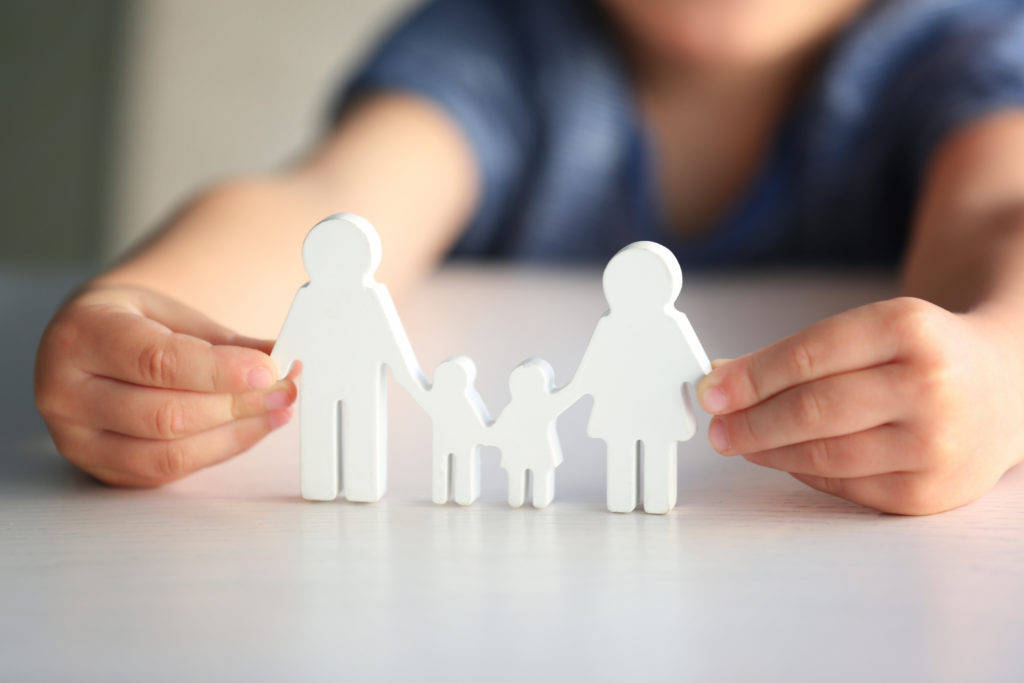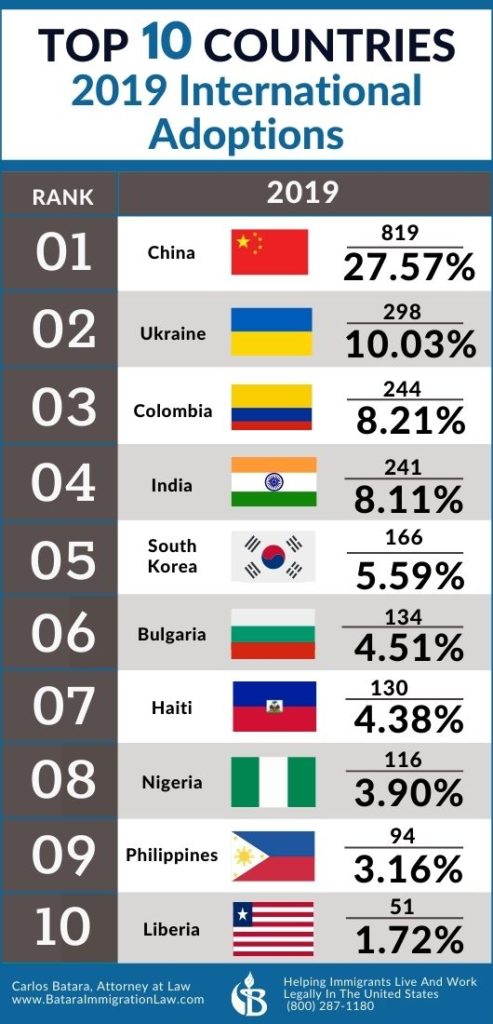
U.S. immigration law has many policy potholes.
Citizenship rules for adopted immigrant children is one such problem.
Brought here as youngsters, thousands end up living their adult lives without a country they can truly call home.
The Unfulfilled Promise Of Citizenship For Immigrant Children Adoptees
As a recent article in USA Today explained, thousands of international adoptees came to the U.S. legally as children. They grew up believing they were American citizens.
Only to find out . . . .
They had been unknowingly living a falsehood caused by errors made by those entrusted to protect them – adoption agencies, adoptive parents, lawyers, and judges who oversaw their adoption process.
Due in part to such mistakes, despite the passage of the Child Citizenship Act of 2000, trust in the international adoptions system has steadily declined since 2004, when the number of adoptions reached a high of 22,986.
In 2019, the loss of trust converged with the Trump Adminstration’s restrictionist policies to reduce the number of international adoptions to an all time low of 2,972. Figures for 2020, a year marred by the Coronavirus, will likely reflect an even smaller figure.

Why The Child Citizenship Act Of 2000 Needs To Be Amended
Prior to 2000, international adoptees were not granted automatic citizenship.
Even though they were in the same legal position as U.S. children born in other countries, adoptees were required to seek immigration benefits similar to adult immigrant sons and daughters, a much slower and complicated process.
To fix this discrepancy, in 2000, the Child Citizenship Act was passed.
It granted citizenship automatically upon arrival in the U.S. to transnational adoptees – akin to the procedures for biological children of U.S. citizens born abroad.
However, the 2000 law left a huge gap. It only covered adoptees 18 years or younger.
20 years later, the problem remains unfixed.
Over the course of their adult lives, many international adoptees have obtained drivers’ licenses and Social Security cards. They have been gainfully employed, married, and raised families.
Suddenly, one day, they learn they are not entitled to legally live in the United States.
Because they are now older, they no longer have lawful status to remain in the U.S. and are vulnerable to being deported to a country that does not recognize them as one of their own.
- Many do not speak their native language, having left the country at an early age.
- Most have no known family members or relatives in their country of origin.
- The majority struggle to adapt to a culture foreign to them and are traumatized by the separation from their U.S. family.
For those forced to return to their nation of birth, shock and loss are common.
As a former international adoptee without citizenship told USA Today, “In adoption, you lose everything.”
She explained, “You lose your language. You lose your bloodline. You lose your religion. You lose everything as the result of adoption and then you’re given a new identity.”
Fearing the possibility of deportation, she added, “And my new identity was given to me as a child. I was an American. This is supposed to be my home.”
The Story of Adam Craspar is instructive what happens when international adoptees are sent back to their home countries.
Adam Craper And The Consequences Of International Adoption Mistakes
The story of Adam Craspar, which drew national attention, is a story how small quirks of fate can lead to disastrous immigration consequences for immigrant children.
His story sparked the creation of various international adoption advocacy organizations, composed largely of other adoptees who, like Craspar, live in the United States with no path to citizenship.
On the one hand, as a naturalization lawyer, I know the separation of immigrants from their U.S. citizen family members and removal to a country they don’t remember is not uncommon in immigration law.
It’s a dismal aspect of our nation’s immigration policies.
Yet, despite the obvious pain and suffering for individuals and families trapped in these situations, Congress has not shown any sense of urgency to address immigration reform.
Two decades of stalled Congressional initiatives is indicative of a unjustifiable political callousness toward immigrants who were victimized by an inefficient bureucratic system.
South Korean Adopted At Age 3 Is To Be Deported Nearly 40 Years Later
National Public Radio, Camila Domonoske, October 27, 2016Adam Crapser was brought to the United States when he was 3, to start a new life — new parents, new culture, new country.
But his adoptive parents didn’t complete his citizenship papers. Then they abandoned him to the foster care system.
At the age of 41, a father of four, he was deported.
His predicament is the result of parental failings, a criminal past and acts of Congress.
Born Shin Song Hyuk, when Crasper was three years old, he and his older sister were abandoned. They ended up at an orphanage outside of Seoul, South Korea.
Five months later, he was on his way to the United States, along with his sister to start a new life.
However, his adoptive parents never completed his citizenship papers. The Craspers were abusive towards Adam and his sister. They would slam the children’s heads against the wall, strike them with kitchen utensils, and burn them with heated objects.
He and his sister were abandoned to the foster care system. Ultimately, they were separated.
His sister is a now U.S. citizen. The new family who adopted her helped help obtain legal status.
Crapser was not as fortunate. His second set of U.S. parents were more abusive than his first. They never filed his green card or citizenship applications.
They were arrested on physical child abuse, sexual abuse, and rape charges. They were convicted of criminal mistreatment and assualt.
He was kicked out of the house at the age of 16. He entered the house one day through an open window to reclaim his belongings, a bible, and a stuffed dog he was given in a Korean orphanage.
He was arrested for burglary. He pled guilty. He spent 25 months in prison. His conviction was deemed an aggravated felony under immigration law, which meant he was subject to automatic deportation.
(Crasper’s conviction fell under our nation’s excessive definition of aggravated felonies – felonies which automatically preclude immigrant defendants from any relief, regardless of deep community and family ties – another policy pothole that needs to be overhauled.)
The Impact Of Ineffective International Adoption Safeguards
Recently, NBC News followed up on Crasper’s return to South Korea.
Today, living in Seoul, Crasper attends monthly visits with a psychiatrist whose English is limited. He has filed a lawuit against the South Korean government for their negligence regarding their role in sending him and thousands of other Korean children to the United States without safeguards for their future citizenship.
As he struggles with his own depression and survival, Crasper seeks answers about why his life and that of other South Korean adoptees failed to become U.S. citizens.
At the time of his adoption, Crasper argues, government agency members had ties to the country’s military dictators and they had less interest in child welfare than maintaining businesses that brought in as much as 20 million dollars per year.
About 200,000 South Koreans have been adopted overseas over the past six decades, the majority to American couples. In 1979, more than 4,000 Korean children were sent abroad in 1979, the year Crasper arrived in the United States.
Crasper’s birth mother, single, disabled, and poor, was convinced that she should give her children away due to fears they might starve otherwise.
They were reunited shortly after a South Korean television station reported the story of Crasper’s return. He tries to see his biological mother, Kwon Pil-ju, every few months. They struggle to communicate with each other. He cannot speak Korean. She cannot speak English. They cannot always find someone who can interpret.
Little did she suspect that her actions would lead to so much pain in Crasper’s life.
Looking back, Kwon never imagined he was going through such a hard life. “I should have kept him even if we starved together. What I did was an unforgivable sin.”
Having grown up with an alcoholic father, her left leg paralyzed from medical malpractice, and Adam’s father who physically abused her until he finally abandoned them, Kwon’s decision is not uncommon for a woman with no formal education in an impoverished country.
How Many Adoptees, Now Adults, Are Living In The U.S. Without Citizenship?
In testimony before a Congressional Subcommittee On Immigration and Citizenship, the National Council For Adoption recently estimated that 15,000 to 18,000 adults who were adopted as children by U.S. citizens do not have U.S. citizenship.
However, the reality is that no one knows for sure. Neither federal or state government agencies track how many internationally adoptees receive citizenship.
According to the Adoptees Rights Campaign (ARC), a grassroots coalition which began in response to the deportation of Adam Crasper, the true number of international adoptees whose parents failed to naturalize them is vastly greater.
ARC’s research shows:
- The number of children adopted from 1945 to 1998, who entered adulthood without U.S. citizenship, ranged from 25,000 to 49,000.
- An additional 7,231 – 14,643 children adopted from 1999 to 2016 are at risk of reaching adulthood without U.S. citizenship.
- The total number of children adopted by U.S. citizens living without protection of U.S. citizenship will increase to a new total of 32,000 to 64,000 adoptees between 2015 and 2033.
Moreover, ARC points out, these figures do not include children brought to the U.S. for adoption using non-immigrant visas after 2016.
The Adoptee Citizenship Act: A Long Overdue Legislative Fix
The solution, of course, is federal legislation.
Over the past two decades, Congress has not seen fit to address the need of international adoptees without a path to citizenship.
As a San Bernardino immigration lawyer, I’ve met various individuals, like Crasper, who face deportation due to small quirks of fate 10, 20, 30 years ago when they were much younger, despite promises of citizenship.
This includes not just international adoptees, but also Cambodian refugees brought here as children to escape genocide and immigrant military veterans who put their lives on the line to protect the U.S. in battle fields across the globe.
Immigration hardliners like to assert, “That’s the law, those are the breaks.”
I don’t buy into that sentiment.
Immigration laws are politically driven and drafted with a short-sighted mindset.
Naturally, policy gaps can and do arise.
Thus, when effects bordering on injustice surface time and time again due to such shortcomings, corrective legislation should follow.
If the age limit of 18 had not been set in stone when the Child Citizenship Act was passed, Crasper and many others like him would have been eligible for U.S. citizenship even past the age of 18.
Twenty years later, help may finally be on the way.
The Adoptee Citizenship Act of 2019 (S. 1554/H.R. 2731) would amend the Child Citizenship Act of 2000, and correct this policy pothole.
Introduced by a bipartisan group of U.S. Senators – Roy Blunt (Missouri), Mazie Hirono (Hawaii), Susan Collins (Alaska), and Amy Klobucher (Minnesota):
- If enacted, the Act would provide automatic U.S. citizenship to foreign-born children lawfully adopted by U.S. families who turned 18 years old before the effective date of the Child Citizenship Act on February 27, 2001.
- It would also provide a process for U.S. citizenship for adoptees lawfully adopted by U.S. families who currently reside outside of the United States, including those, like Crasper, who have already been deported.
It’s legislation long overdue.
For adoption advocates, hope springs eternal.
They hope that under the Biden Administration, justice will be served, the Act will pass, and foreign-born adoptees will be granted a path to U.S. citizenship status they always thought was theirs.




